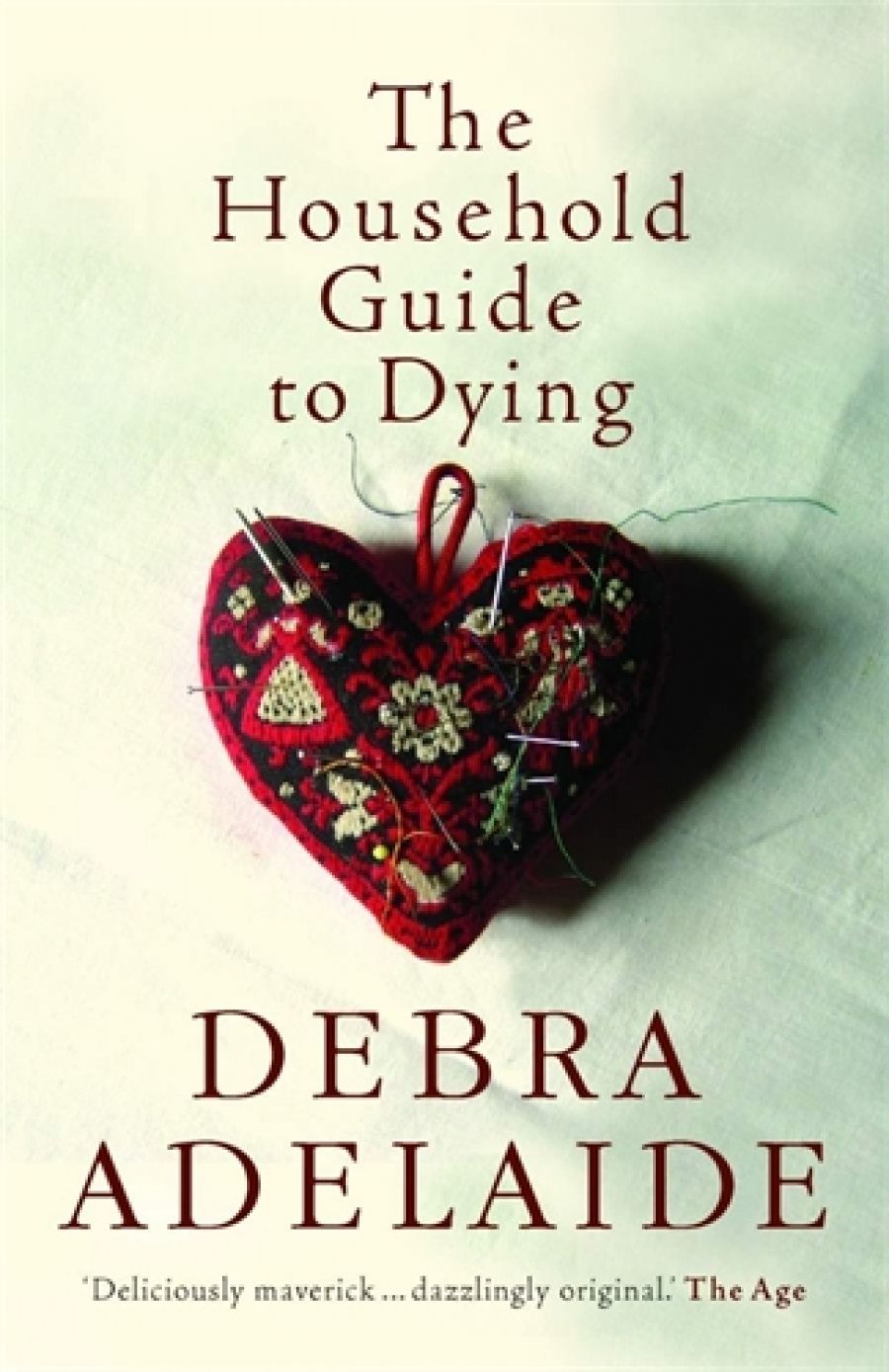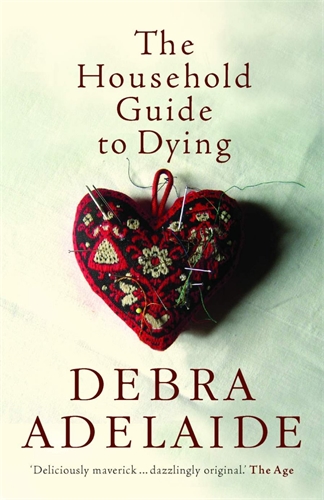
- Free Article: No
- Custom Article Title: The Household Guide to Dying
- Review Article: Yes
- Article Title: The Household Guide to Dying
- Online Only: No
- Custom Highlight Text:
Why are there so many books about death and dying appearing at the moment? Is it about the baby boomers facing up to their mortality? It is certainly a subject that interests me, and Debra Adelaide’s novel should be compelling. Unfortunately, I found its determined flippancy laboured and grating. The first-person narrator, Delia, a writer of household guides, is not yet forty. Given a bad prognosis for her breast cancer, she decides that her last work will be a guide to dying, in which she will record her physical and emotional journey.
- Book 1 Title: The Household Guide to Dying
- Book 1 Biblio: Picador, $32.95 pb, 395 pp
- Book 1 Cover Small (400 x 600):

- Book 1 Cover (800 x 1200):

A self-confessed ‘control freak’ confronted with her inevitable loss of control, Delia writes instructions for the ways in which her family should live after her death. She plans her younger daughter’s future wedding (Daisy is nine years old), and chooses her husband Joe’s next sexual partner. To demystify her burial, Delia commissions her own coffin and has it placed on the front verandah to familiarise the family with it. (We know that John Donne practised lying in his.) Delia then asks her publisher to take photographs of her lying in it sipping a martini. She attends an autopsy, meticulously noting the body parts as they are exposed, and later describes a heart transplant. She fills boxes with mementoes for her girls and loads the freezer with pre-prepared food for ‘afterwards’. She surreptitiously plants flowers in the lawn of her misanthropic neighbour. Most importantly, Delia makes a pilgrimage to Amethyst, the northern country town from which she fled as a pregnant teenager twenty years earlier. There, twelve years ago, she experienced the greatest tragedy of her life. Now her mission is to find an unnamed person in order to achieve spiritual peace.
This novel is well written and rich in literary allusion. Clearly, Adelaide is aiming to subvert the taboo surrounding death that we have in Western culture. But my readerly response shifted from incredulity to irritation to distaste. The sausage-making episode is especially offensive.


Comments powered by CComment